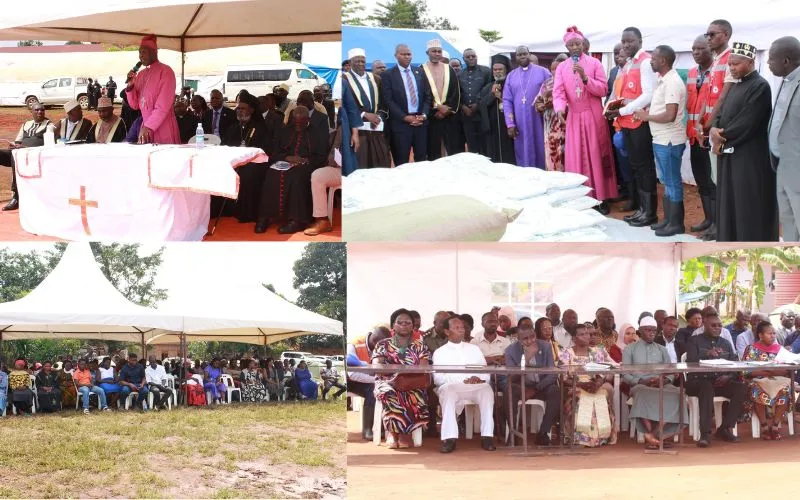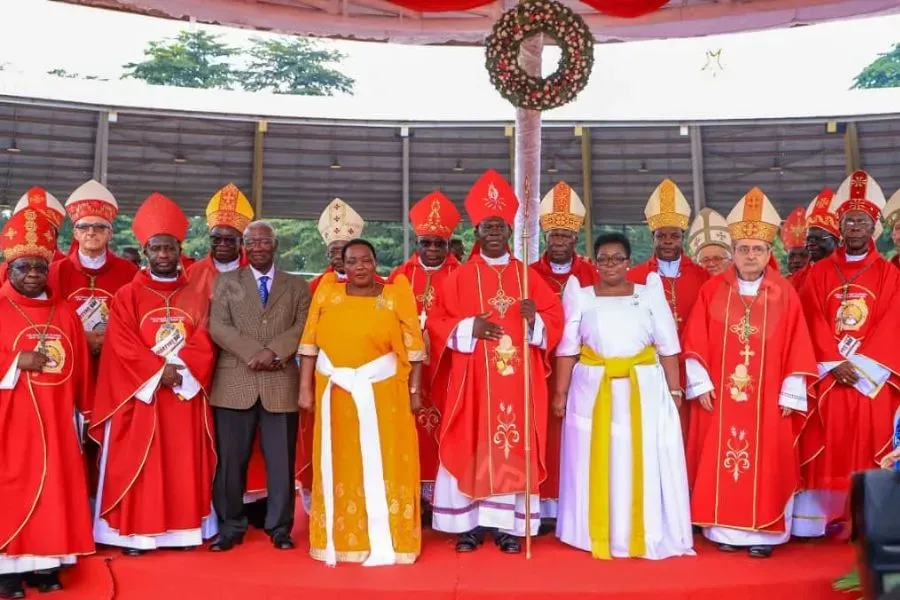“We stand with you in these difficult times and pray that God comforts you,” IRCU Chairperson, Archbishop Stephen Kaziimba Mugalu of the Church of Uganda told the survivors.
The religious leaders, who include representatives from the Uganda Episcopal Conference (UEC) expressed their awareness of the challenges those displaced by the disaster are facing.
“I know you have many questions, but some may not have answers. You worked for years to build a home, and now it's gone. Some families lost their innocent children in this tragedy,” Archbishop Kaziimba told the survivors, who are currently staying at the Kiteezi playground that is hosting 120 women, 146 children, and 62 men.
He called upon the Ugandan government to spearhead assistance to the affected individuals, saying, “The Ministry of Disaster and Preparedness must do more to address this situation.”
The IRCU, a body that unites various faith-based institutions in Uganda, organized the August 19 service to offer spiritual support and distribute food donations to the victims.
In his remarks during the prayer session, the IRCU Chairperson underscored the need for “practical government intervention to alleviate the suffering of the displaced families.”
He called for “immediate action to provide proper accommodations and ensure that those who lost their homes receive the help they need.”
Following the service, IRCU members issued five key recommendations to President Yoweri Museveni-led government.
“The government should often act promptly to the advice and warnings by technical and professional personnel related to projected disasters by regulators such as the National Environmental Authority (NEMA) to avoid such catastrophes,” the religious leaders said in their recommendations read by IRCU Co-chair, Archbishop Jeronymos Muzeeyi of the Uganda Orthodox Church.
They added, “Government structures for social workers, humanitarian organizations, and religious and faith-based institutions should provide psycho-social support and counsel to victims of this disaster.”





